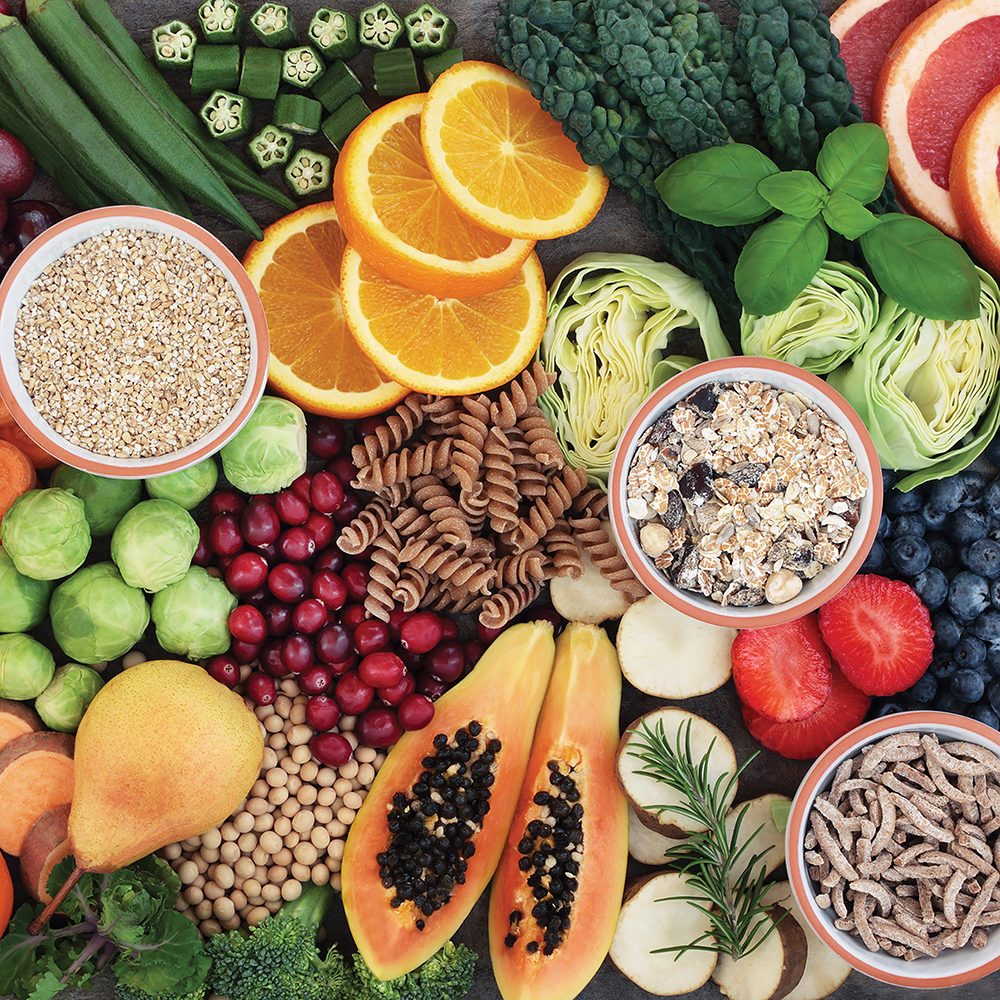The Importance of Fiber in one's Diet
In addition to being a requirement for a balanced diet, fiber can also have a number of health benefits in reducing the risk of heart disease, diabetes and some cancers.

Eat more fiber. You've probably heard it before. But do you know why fiber is so good for your health?
Dietary fiber found mainly in fruits, vegetables, whole grains and legumes is probably best known for its ability to prevent or relieve constipation. But foods containing fiber can provide other health benefits as well, such as helping to maintain a healthy weight and lowering your risk of diabetes, heart disease and some types of cancer.
Benefits of a high-fiber diet
- Aids your digestive system: The main benefit of fiber is to aid the digestive system. Ensuring you have enough dietary fiber in your diet will help you normalize your bowel movements and reduce the risk of inflammatory bowel diseases. It will also help you maintain a healthy colon and digestive tract.
- Maintains cholesterol levels: Foods that are high in fiber can help stabilize your blood sugar levels and also maintain cholesterol levels that are within a normal range. High fiber foods can help lower the total blood cholesterol level by lowering the bad cholesterol levels or low-density lipoprotein that our bodies get.
- Helps control blood sugar levels: In people with diabetes, fiber can slow the absorption of sugar and help improve blood sugar levels. A healthy diet that includes insoluble fiber may also reduce the risk of developing type 2 diabetes.
- Helps in weight management: High-fiber foods tend to be more filling than low-fiber foods, so you're likely to eat less and stay satisfied longer. High fibre foods will slowly release energy, meaning you will eat less over the course of the day. Moreover, foods high in fiber tend to take longer to eat and to be less "energy dense," which means they have fewer calories for the same volume of food.
How much fiber do you need?
|
|
Age 50 or younger |
Age 51 or older |
|---|---|---|
|
Men |
38 grams |
30 grams |
|
Women |
25 grams |
21 grams |
Tips for fitting in more fiber
Need ideas for adding more fiber to your meals and snacks? Here’s a list of high fiber foods:
- Kidney Beans (Rajma) – 11g per cup
- Split Peas – 15g per cup
- Chickpeas (Chana) – 12g per cup
- Apple – 4g for a medium sized
- Banana – 3g for a medium sized
- Carrots – 3g per cup
- Oats – 10g per 100g
The Bottom Line
Fiber is an important nutrient that may promote weight loss, lower blood sugar levels and fight constipation. Drink plenty of water because fiber works best when it absorbs water, making your stool soft and bulky.
High-fiber foods are good for your health. But adding too much fiber too quickly can promote intestinal gas, abdominal bloating and cramping. Increase fiber in your diet gradually over a few weeks. This allows the natural bacteria in your digestive system to adjust to the change.


